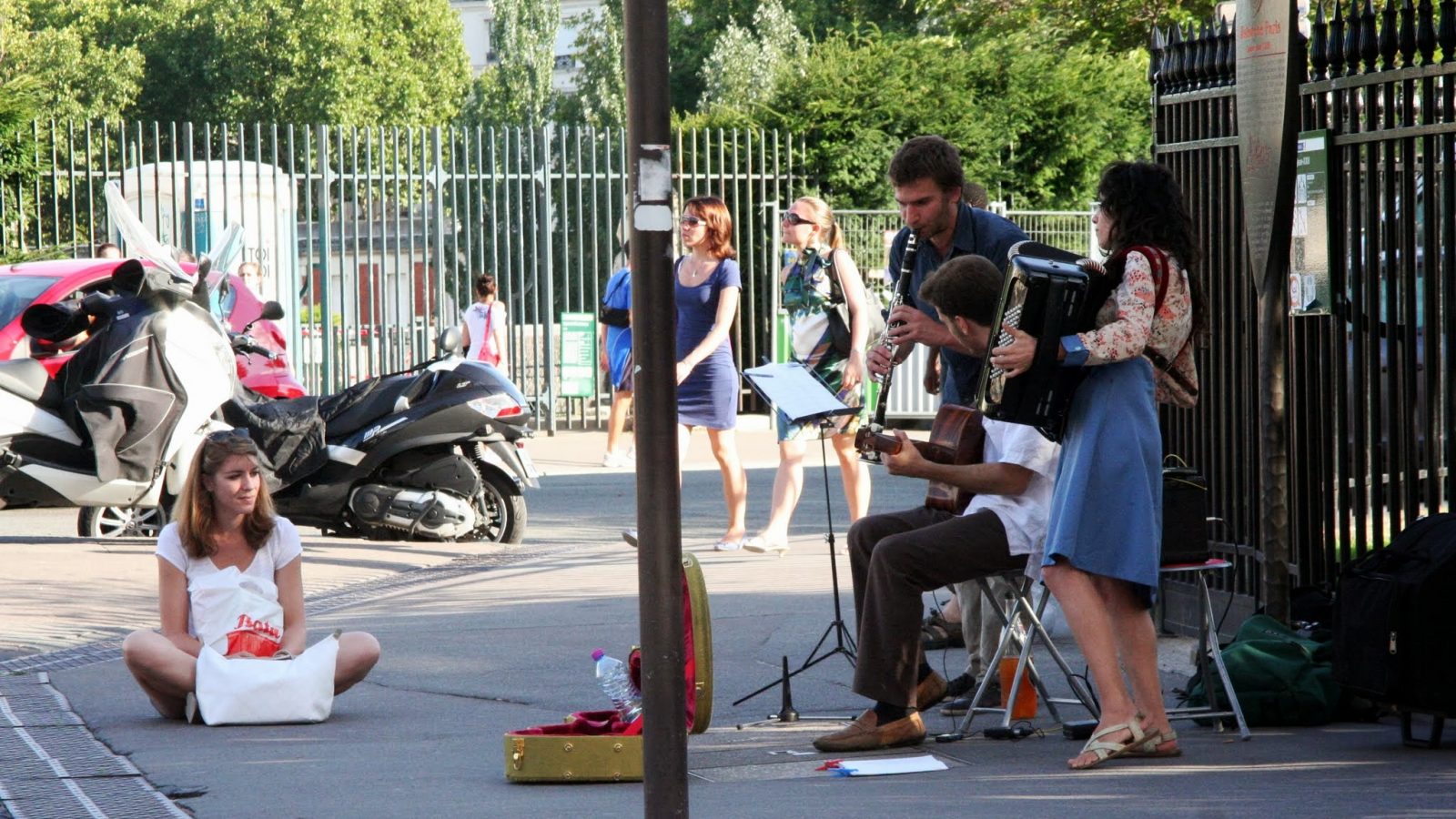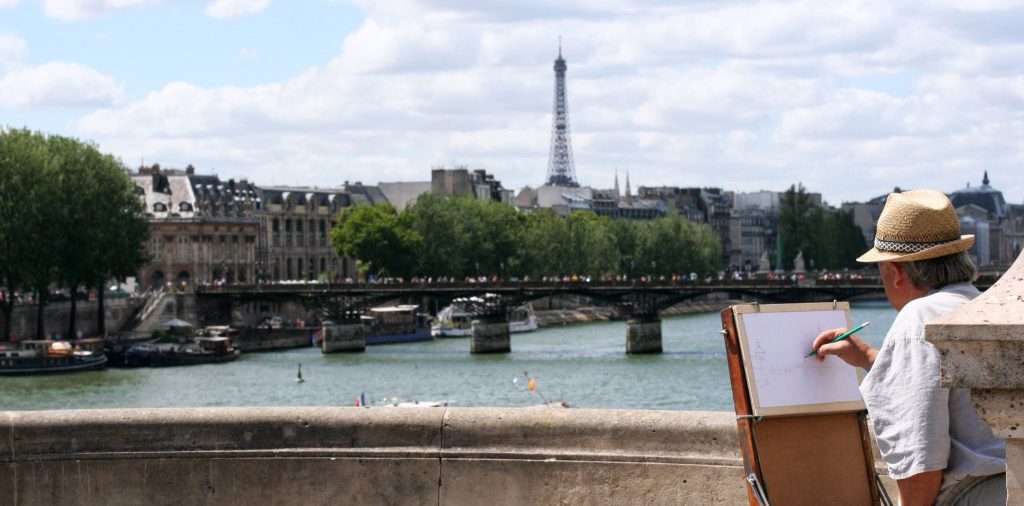
Multiple choice. Which cliché is the most true?
- The French are rude.
- The French hate Americans.
- The French are great lovers.
If you chose a or b, there is a 90% chance you have not been to France in the last 25 years. Well done if you chose c. This indicates there is a 90% chance you have been to France sometime or you read a lot of French literature. That still leaves the 10% who swear they were treated so badly that they would never return to France.
As an American artist based in Paris since 1994, I am weary of hearing, “But I heard the French are rude” or “…the French hate Americans.” Often these comments come from first time visitors to Paris who are amazed to be warmly welcomed with no show of prejudice. I tell them, “Go home and spread the word!”
Like everywhere, France has some pretty obnoxious individuals. However, France is intrinsically an extremely polite society, though there are significant cultural differences in one’s response to others.
Individuals are not servants nor doormats, hospitality sector or not.
Interwoven deeply in the French psyche is their motto, “Liberté, Egalité, Fraternité” (liberty, equality, brotherhood). No matter one’s position in life, the individual feels he or she has the same rights as the President and quite rightly deserves the same respect. If respect is not shown, they respond in kind.
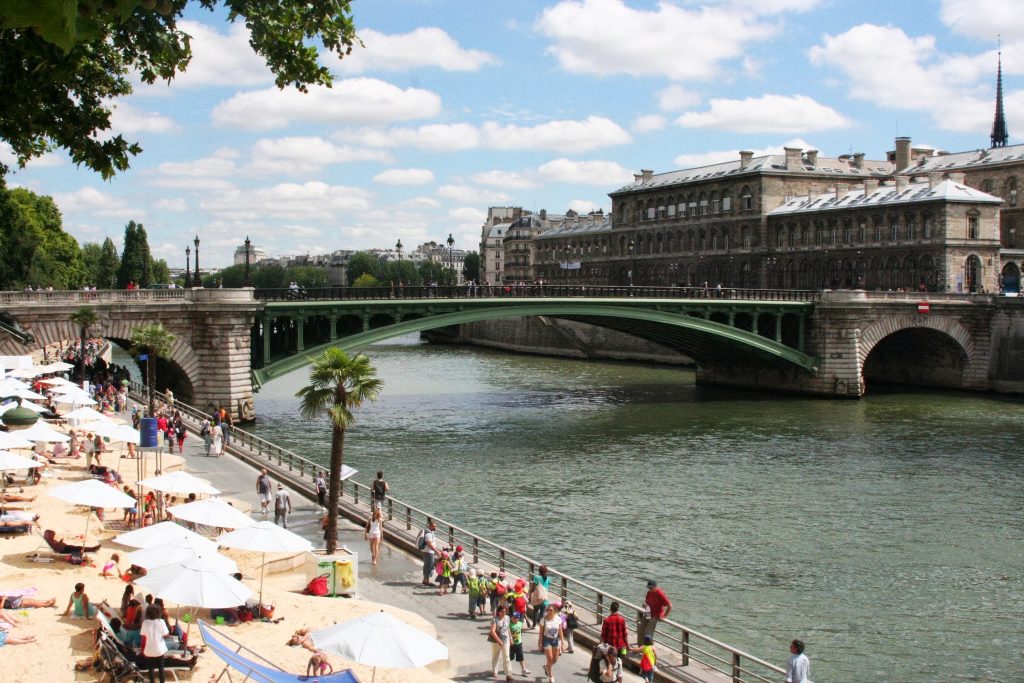
For example, take a basic courtesy. When walking through a door, the French always look back and hold the door for the next person, even if that person is several steps back. This is an absolute, regardless of sex, age, or social status. Therefore, if you happen to walk through a door and immediately afterwards a Frenchman runs up to you and starts telling you off, he is not berating you because you are American. He is telling you that you are an inconsiderate slob for letting the door slam in his face.
Granted, even in France, money and status can sometimes buy subservience. There are others who embrace the “turn the other cheek” philosophy. However, the majority will not tolerate what they consider inappropriate treatment. Often the lower the position, the more an individual will wield whatever power he or she has in order to command that fundamental respect.
The most essential word in French? Bonjour
Walking into a shop, café, doctor’s office, getting into a cab, etc. the French always acknowledge
the presence of others. “Bonjour Madame,” “Bonjour Monsieur.” “Hi” or “Good Day” works equally well. Upon leaving, even if purchasing nothing, the French say “Au revoir Madame, Monsieur.” “Bye, bye” is universal. This is not false friendliness; just elementary courtesy. Leaving a greeting out of any contact with another is considered ill-mannered.
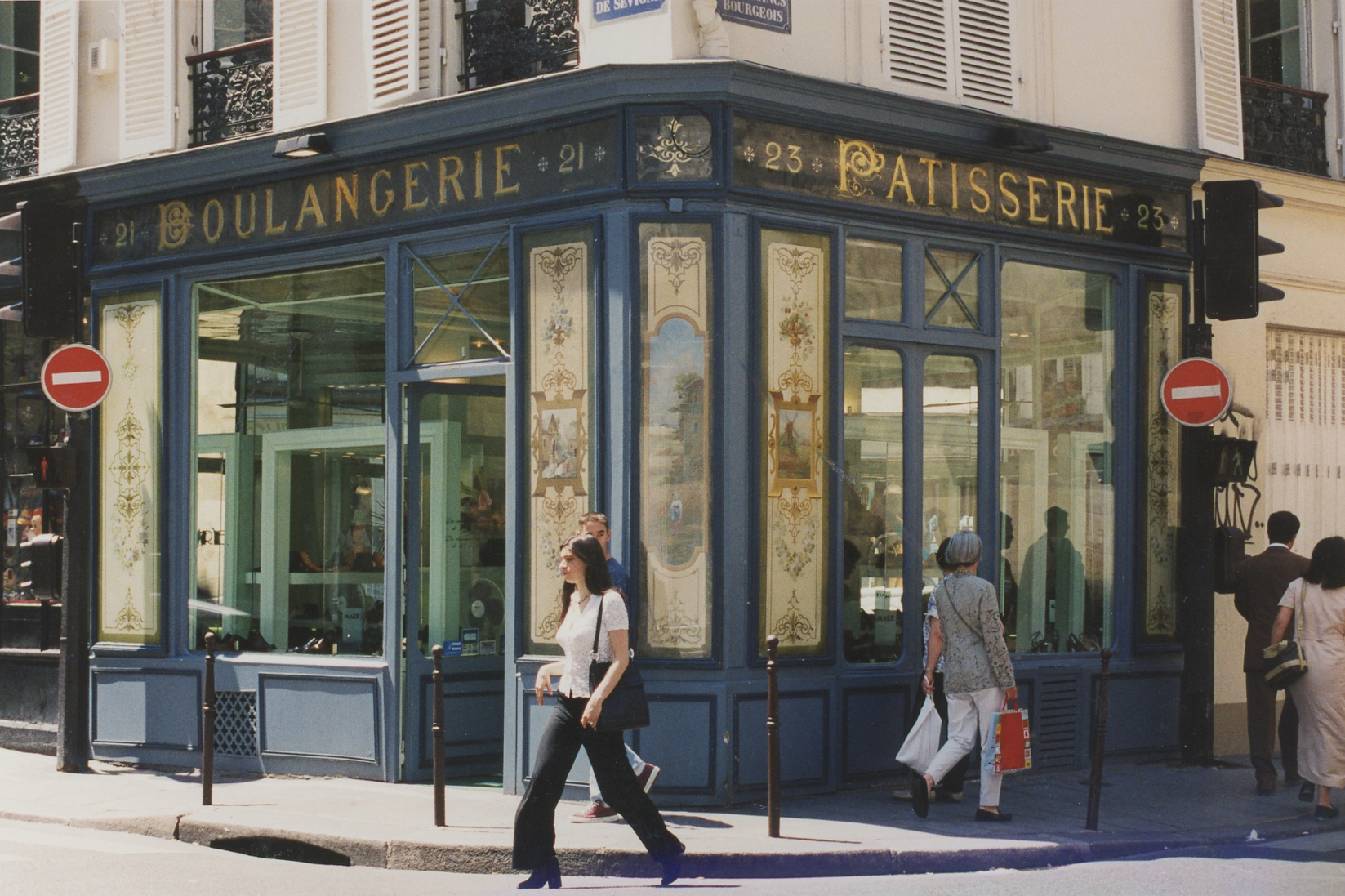
In France, the customer is not king; the server is not a servant. A pleasant “hello” opens more doors than an open Gucci pocketbook.
Perhaps you walk into a shop and disregard the girl behind the counter, even though she probably greeted you. When you turn to her and ask “Do you have this T shirt in extra large?”, do not be surprised if she snubs you or declares, “That’s all we have”, even as she turns smiling to help another shopper with the same question.
Conversely, you really are polite, but the waiter or clerk remains sullen, though efficient. Most likely it has nothing to do with you. He may have had a whopping big fight with his girlfriend that morning. No one sings “put on a happy face” in France. They don’t smile unless are amused or especially pleased. Thus, that glum face may not be exhibiting dislike, only reflecting the morning’s upset.
Sometimes helpful to a fault?
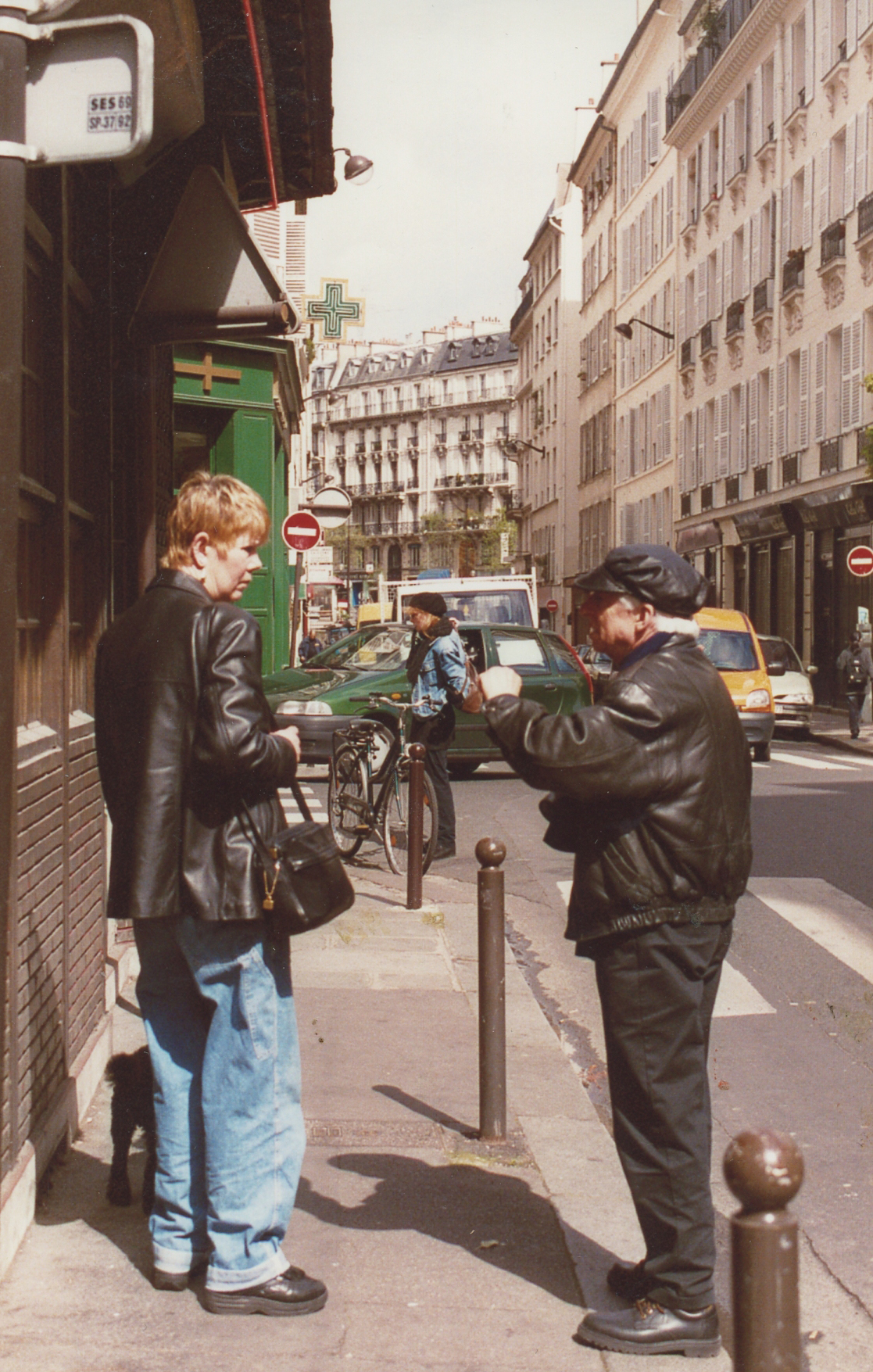
Photo ©2000 Ann James Massey
Surely that elderly French man who points you the wrong way when you ask for directions is showing disdain? Pas du tout (not at all)! The French want to be helpful, but some cannot admit they do not know the answer. Chances are that if he did not misunderstand, he probably did not know the area either and guessed incorrectly. In his mind, it would have been impolite not to try and help…a bit like the blind leading the blind.
Private life is private.
Why does your new French business acquaintance clam up when you inquire how many children he has or what kind of car he drives? You are just showing interest in him as a person. Nope, in French culture, you are prying. Personal details are rarely discussed except perhaps among intimates. Talk about books, movies, art, history, strikes, philosophy, politics, music, world affairs, others’ affairs, food, TV, religion, love, chemistry, the neighbor’s yapping puppy at midnight, almost anything, but do not query anyone for the details concerning their family, possessions, or money. Personal snippets may be proffered, but it is rare. Do not expect it; do not ask.
What about that waiter?
Think of those romantic stories of struggling writers spending their days in cafés…not eating. Paying $12.00 for a coke at a sidewalk café on the Champs Elysées has leased you a tiny spot on the world’s most famous boulevard. You have staked your claim to spend hours writing postcards home while taking in the ebb and flow of humanity.
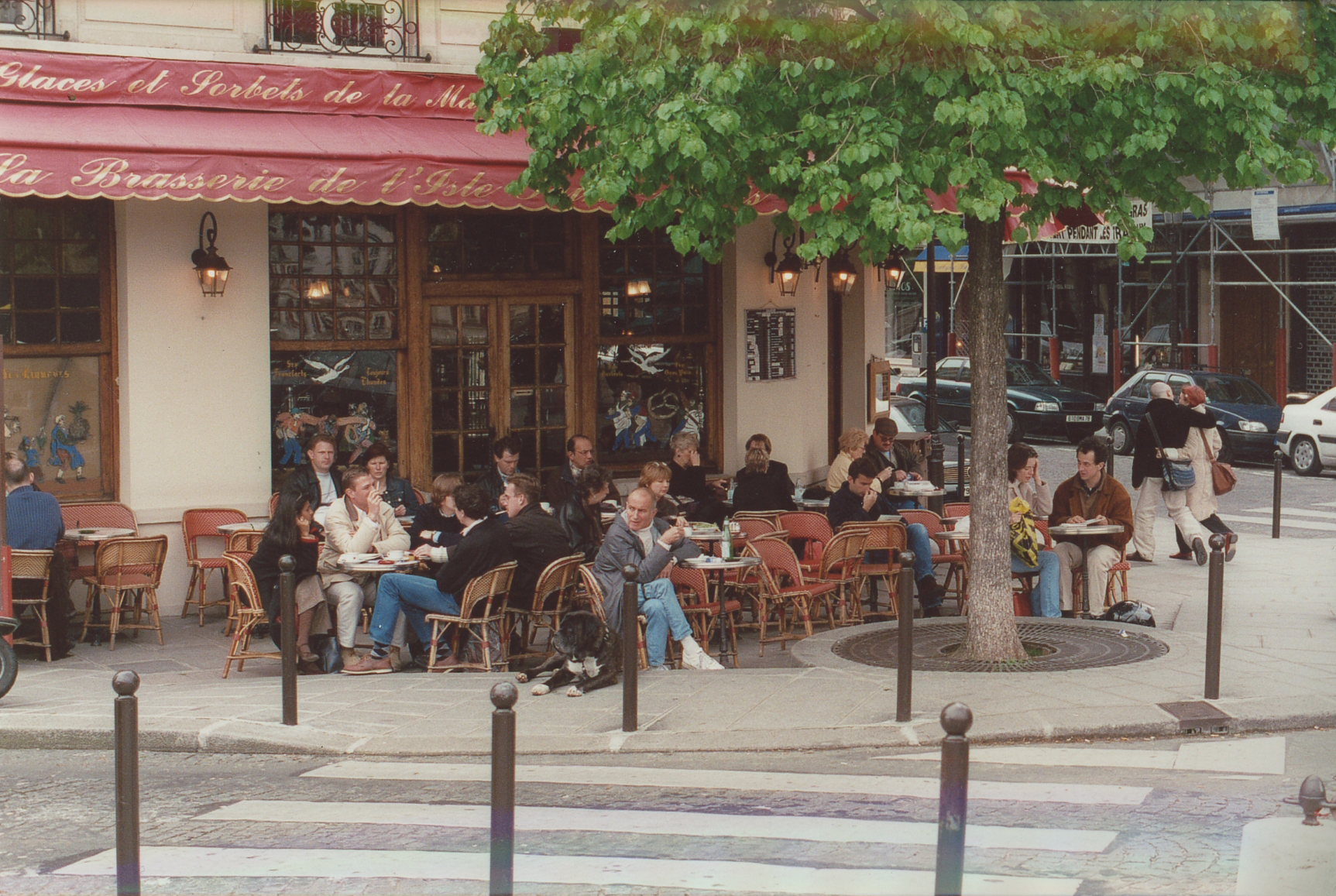
Photo ©2001 Ann James Massey
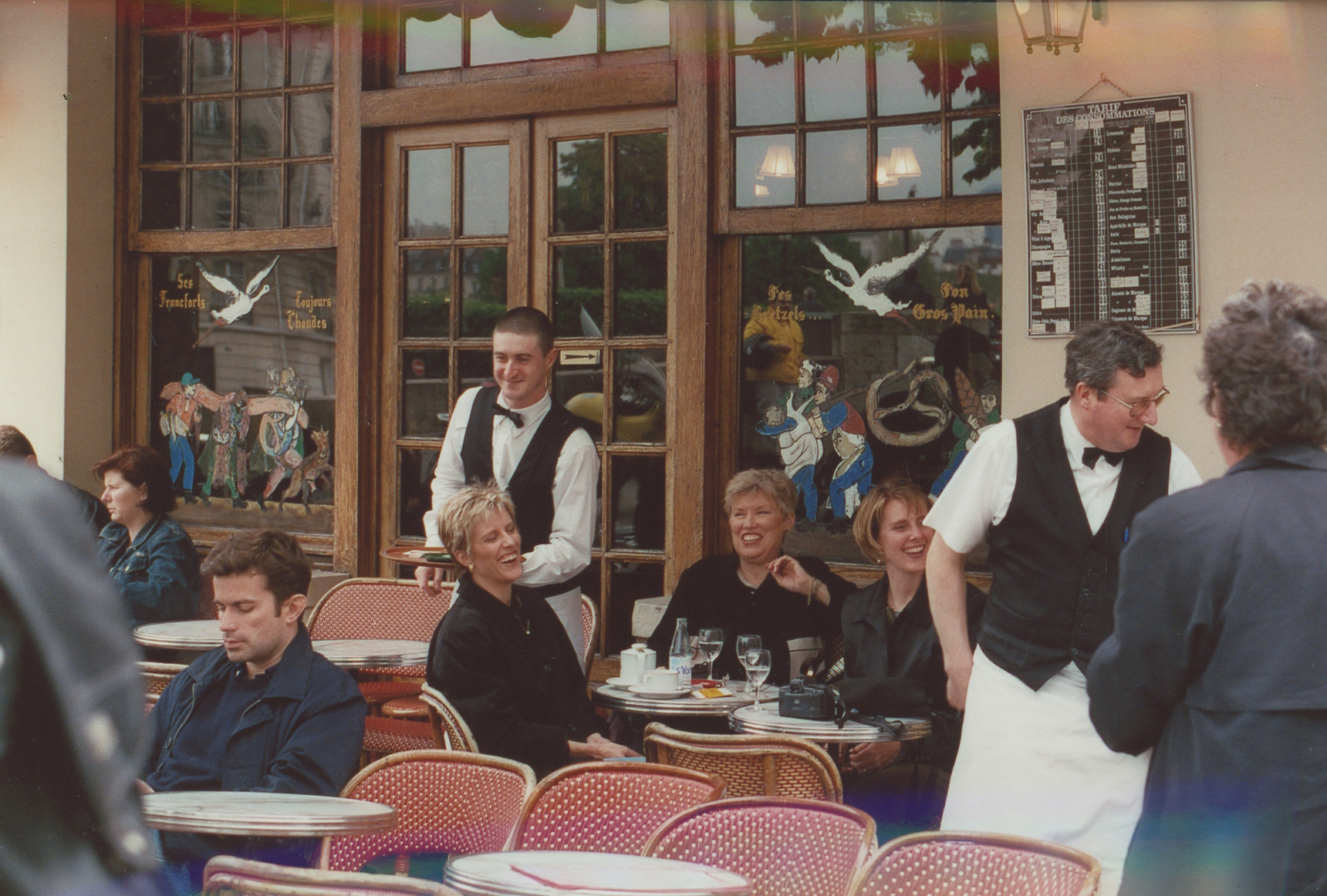
There is still the issue of the impertinent waiter who neglects you, making you wait far too long in between courses and forgetting to bring you the bill. This is a society where dining is an event, not just quick nourishment squeezed between seeing the Mona Lisa and ascending the Eiffel Tower. Time must be allowed for digestion and conversation between the entrées (appetizers in French…entrée does mean “to enter”…the Plat is the main dish) and the final coffee (served after dessert, not with dessert, unless you request otherwise). To bring the bill before the diner specifically signals for it suggests that the establishment wants to push you out unceremoniously. The process is quicker if you explain up front that you are in a hurry.
The love affair…with the States.
When Nicolas Sarkozy became president of France in 2007, his appreciation of the United States was well established. Be assured he had never been alone in a crowd of fist-shaking Frenchmen. Many French love and admire Americans, our culture and our country even as they deplore globalization, genetically altered crops, the Iraq War and gun violence. Surprisingly, McDonald’s is thriving in France, despite the best past efforts of activist farmer José Bové. Their location on the Champs Elysees is their most successful location in the world according to the McDonald’s website.
Almost all students take English as their second language, and it seems as if every other TV program or movie is from the US. “CSI”, “Monk”, “House”, “Law & Order”, “Buffy the Vampire Slayer”, “Gray’s Anatomy”, and just about every US drama and sitcom are available on French TV or cable in dubbed or original versions.
Separation of person and State.
Most of all, the French separate their views on politics and government from their feelings about the American people, whom they view as individuals. In all my years in France, I have not had one bad incident because I am American. More often, they take extra care, in order to assure me that they are not prejudiced.
Respect begets respect…and enjoy France!
So if you come to France, you will be welcomed with open arms and kisses on both cheeks. Just be sure to hold the door open for the person behind you and say “Hi” to that taxi driver before you give your destination. For that matter, let’s do it in the States too!
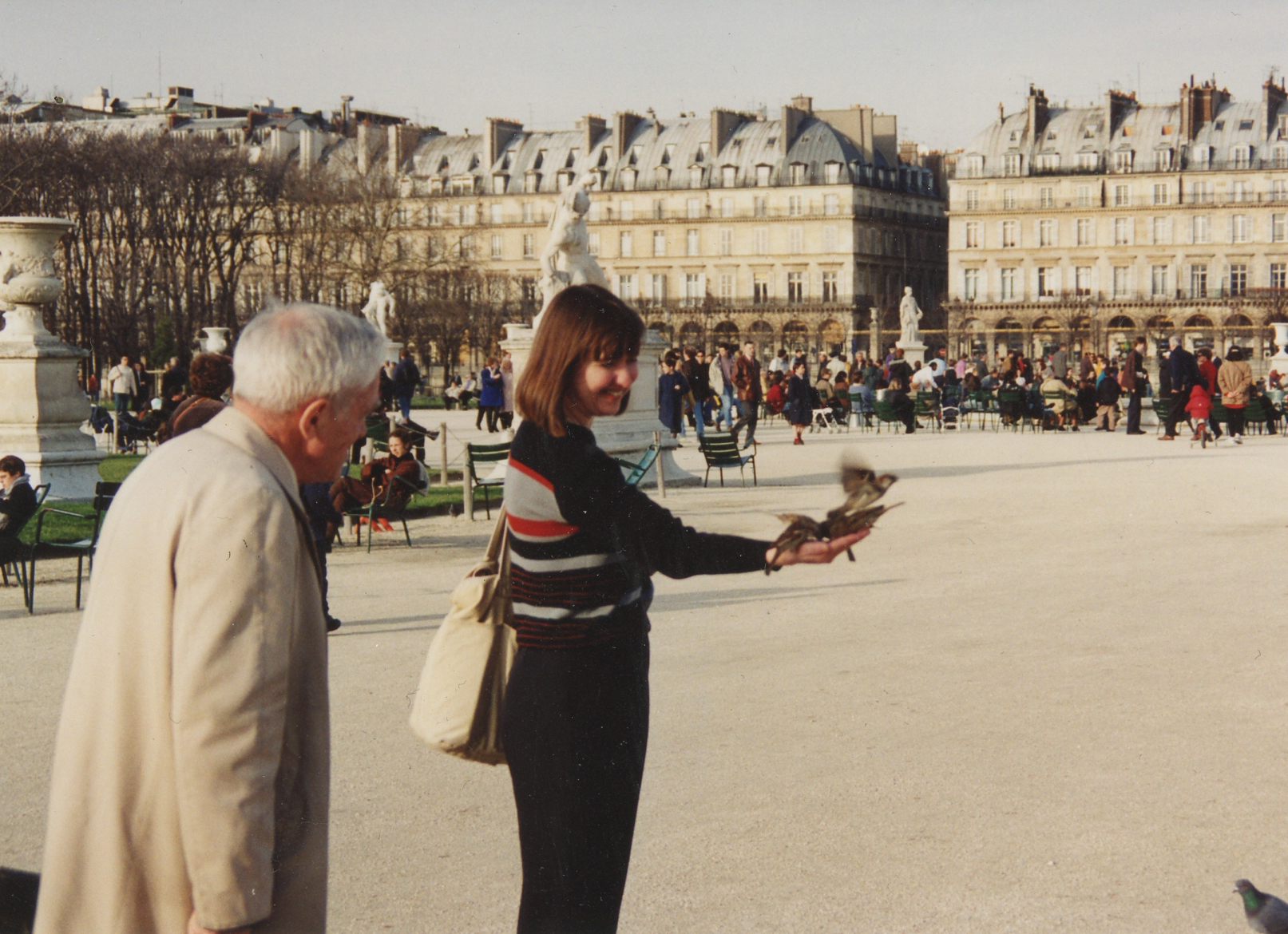
Unknown French gentleman on the left graciously gave Ann rice to feed the birds
Originally printed in the “Massey Fine Arts” newsletter Vol. 11 No. 1, Spring © 2008, 2022 by Ann James Massey, SWA, CPSA, UKCPS, AAPL
Support the Artist
If you enjoy Ann’s artwork, articles, or anecdotes and would like to support her with a donation, please feel free to do so here.

